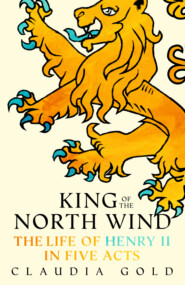
Полная версия:
King of the North Wind: The Life of Henry II in Five Acts

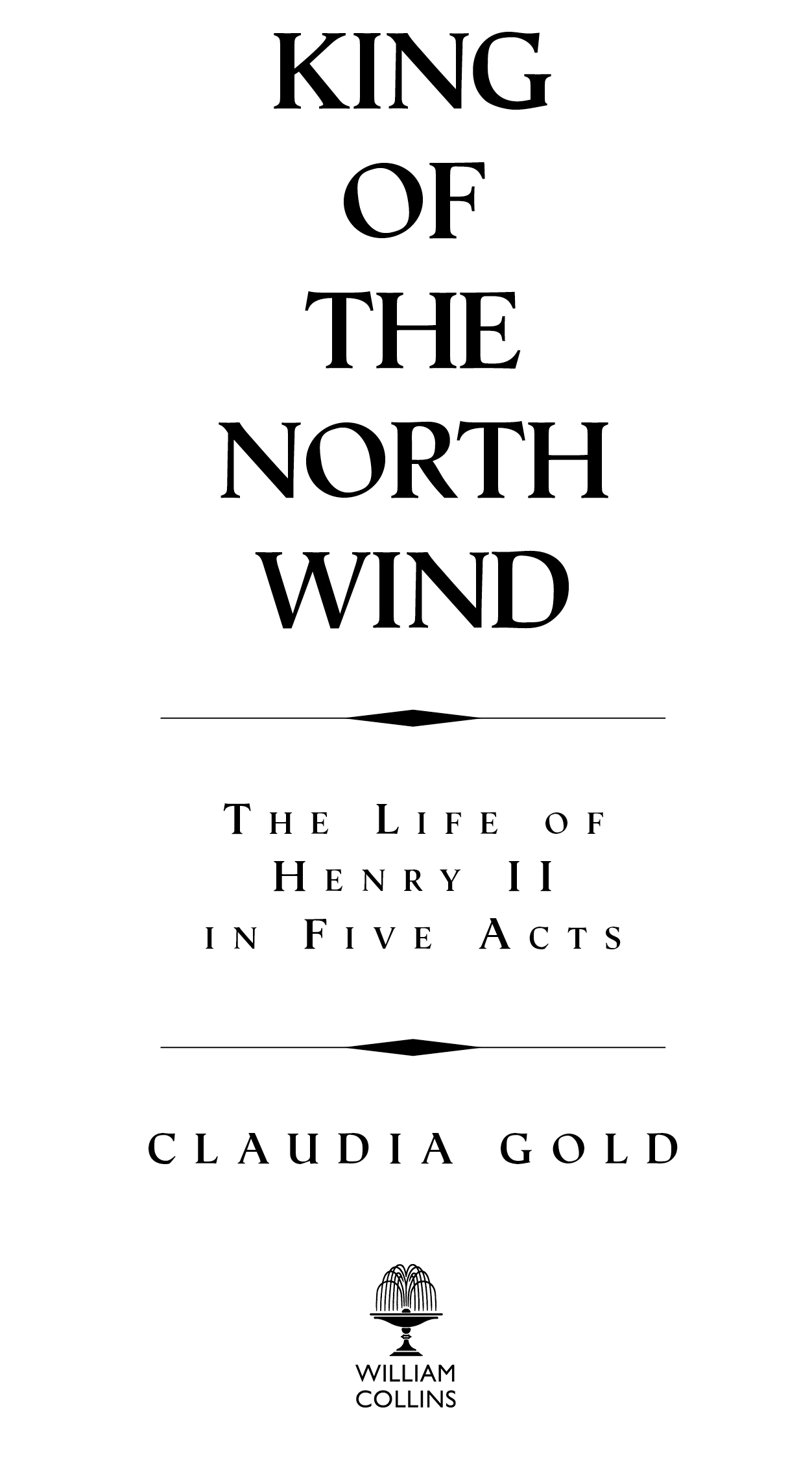
COPYRIGHT
William Collins
An imprint of HarperCollinsPublishers
1 London Bridge Street
London SE1 9GF
www.WilliamCollinsBooks.com
This eBook first published in Great Britain by William Collins in 2018
Copyright © Claudia Gold 2018
Maps and family trees by Martin Brown
Cover design by Jack Smyth
Claudia Gold asserts the moral right to be identified as the author of this work
A catalogue record for this book is available from the British Library
All rights reserved under International and Pan-American Copyright Conventions. By payment of the required fees, you have been granted the non-exclusive, non-transferable right to access and read the text of this e-book on-screen. No part of this text may be reproduced, transmitted, down-loaded, decompiled, reverse engineered, or stored in or introduced into any information storage and retrieval system, in any form or by any means, whether electronic or mechanical, now known or hereinafter invented, without the express written permission of HarperCollins.
Source ISBN: 9780007554782
Ebook Edition © July 2018 ISBN: 9780007554799
Version: 2018-06-25
DEDICATION
For Phil, Asher and Jake
CONTENTS
Cover
Title Page
Copyright
Dedication
Maps
Family Trees
Cast of Characters
Prologue
Act I – The Bargain
Act II – Triumph
Act III – Pariah
Act IV – Rebellion
Act V – Nemesis
Epilogue
Timeline
Notes
Bibliography
Acknowledgements
List of Illustrations
Picture Section
Index
Also by Claudia Gold
About the Author
About the Publisher
MAPS
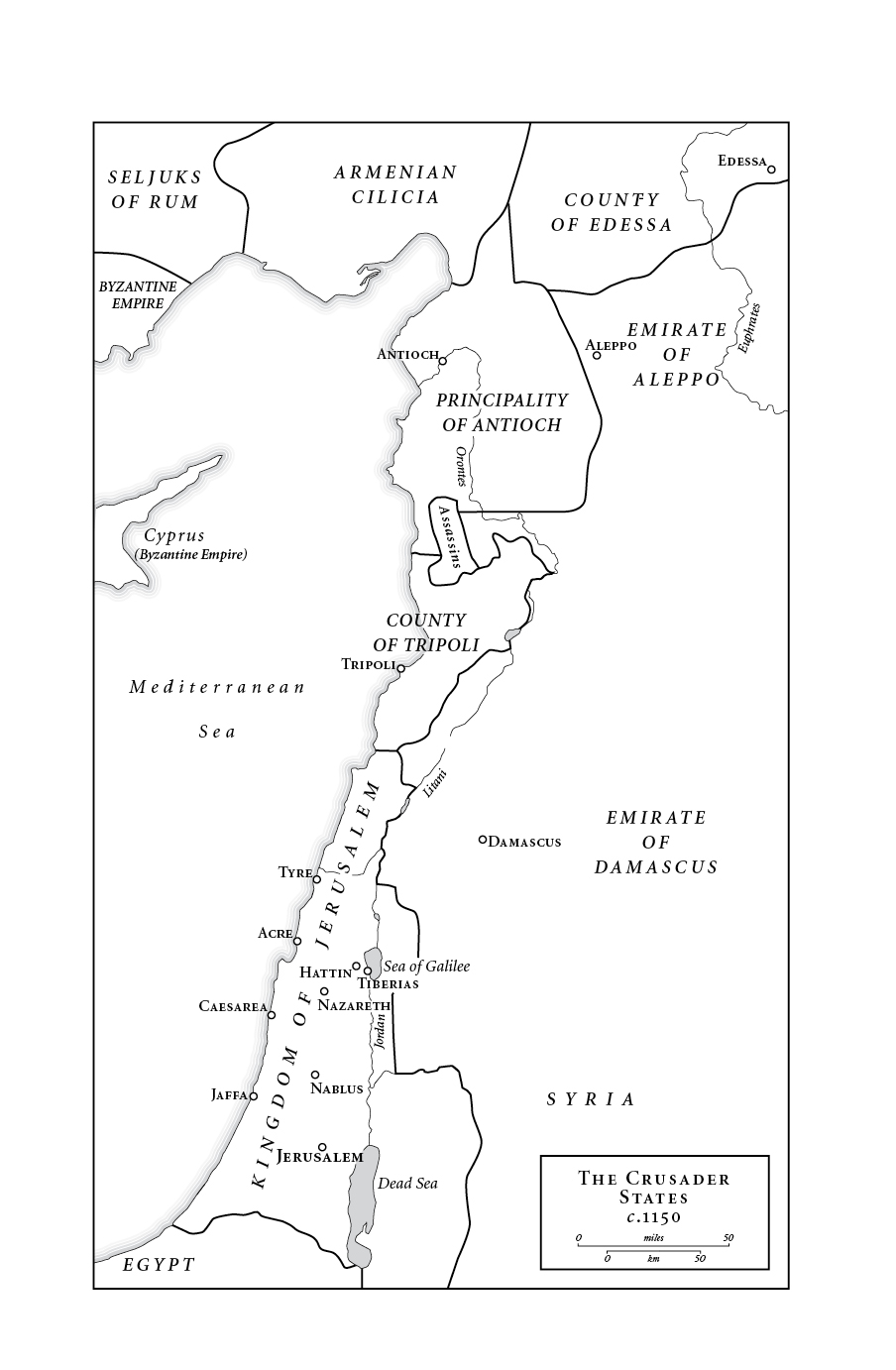
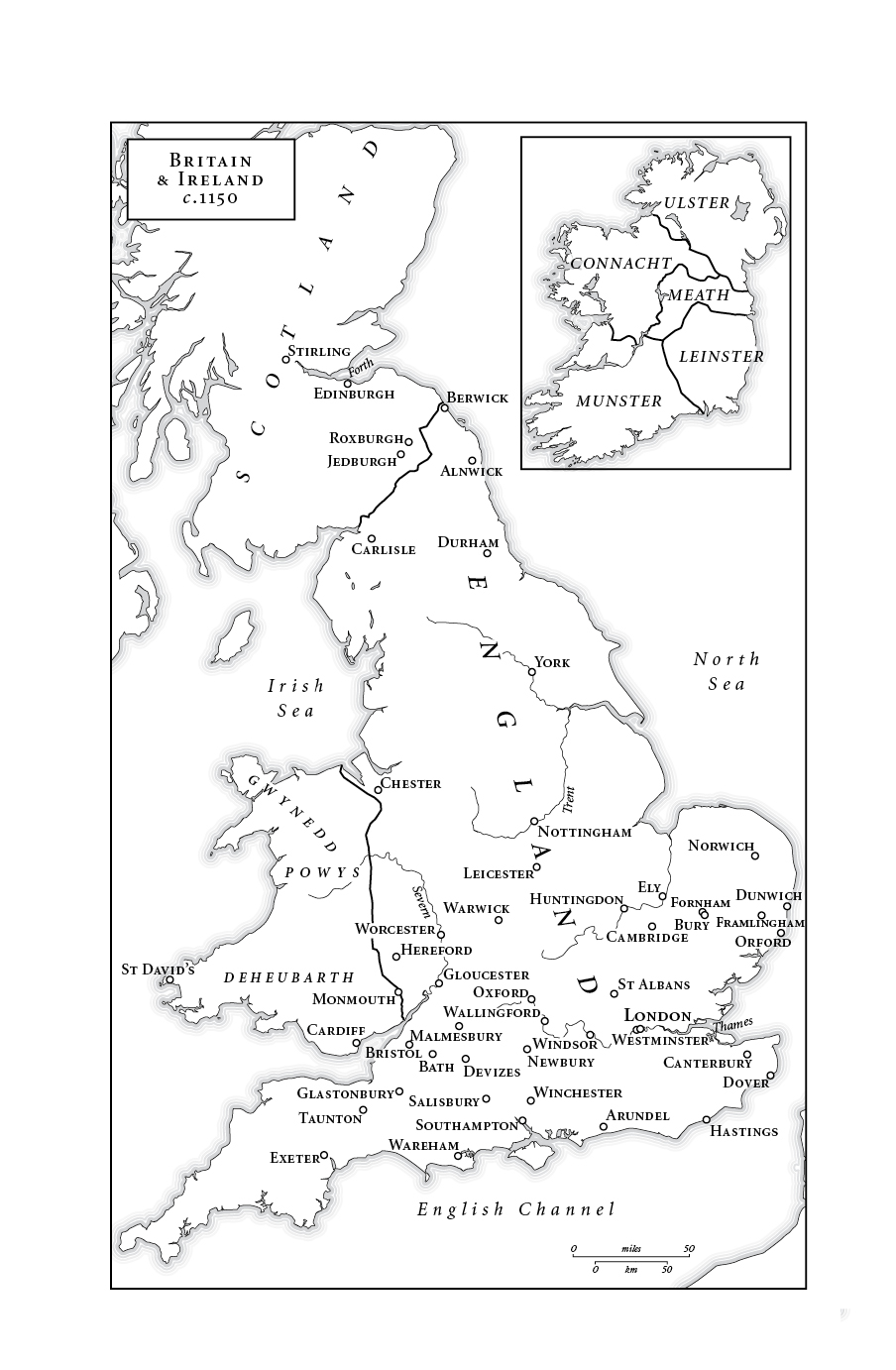
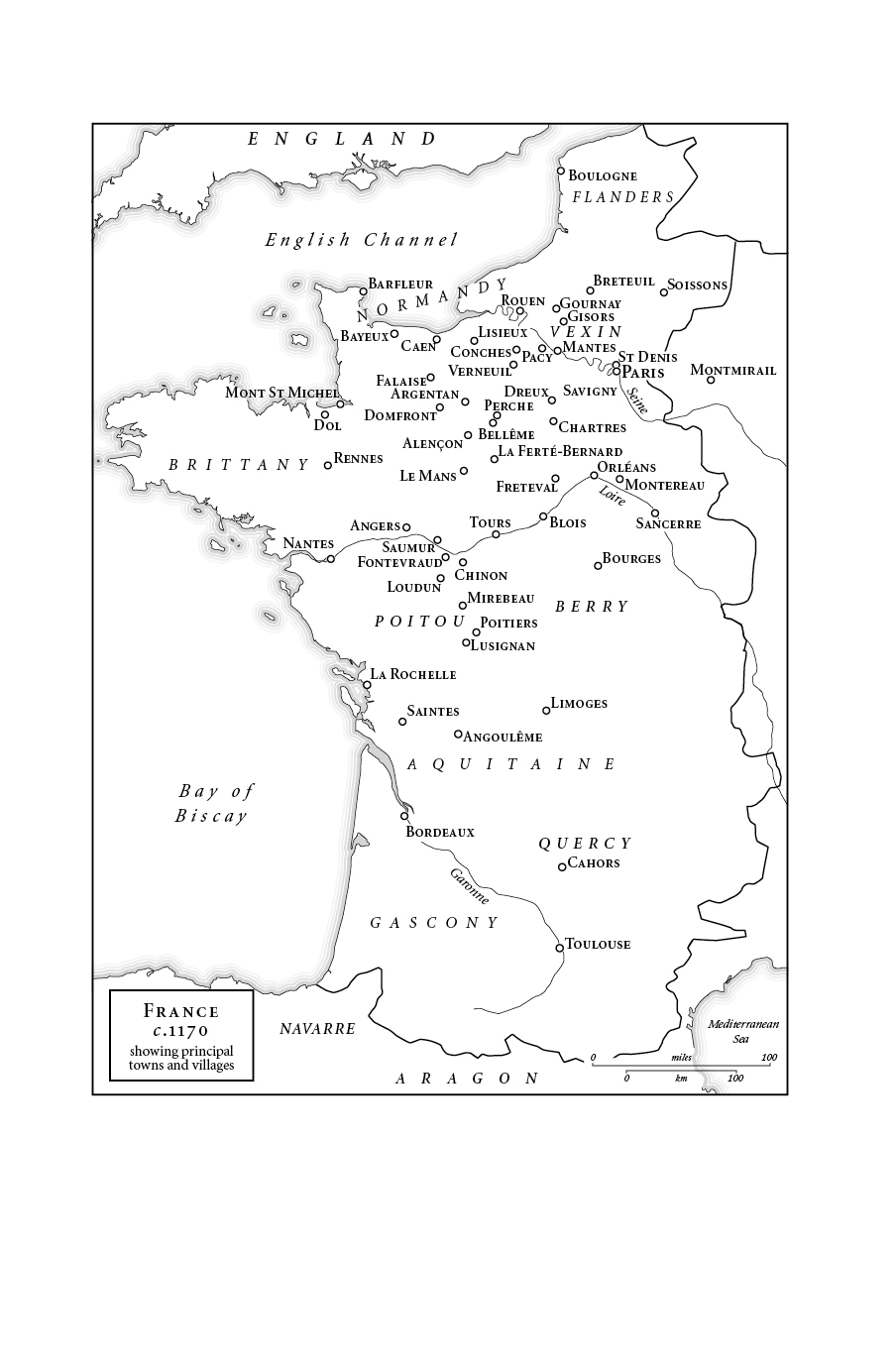
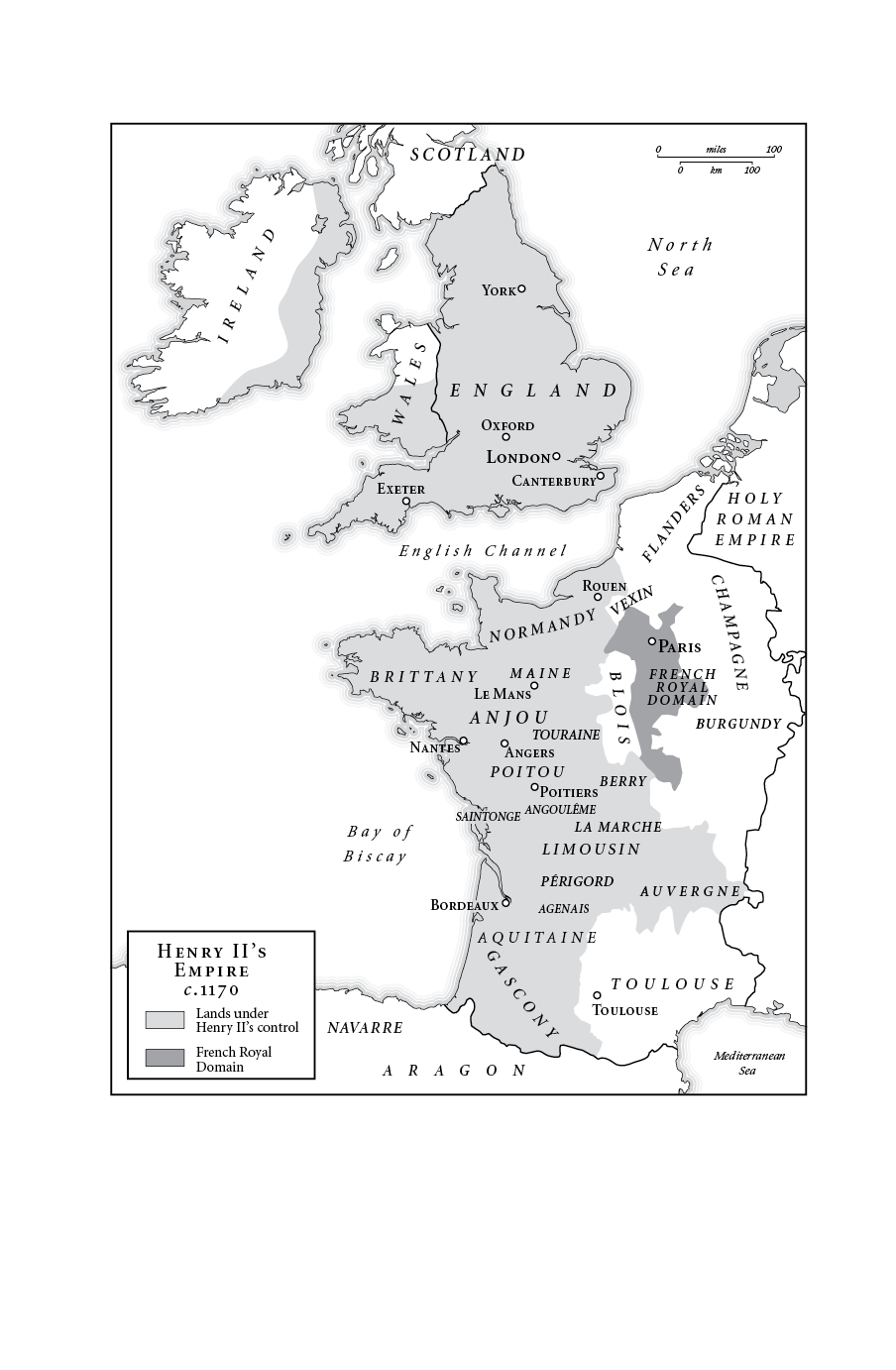
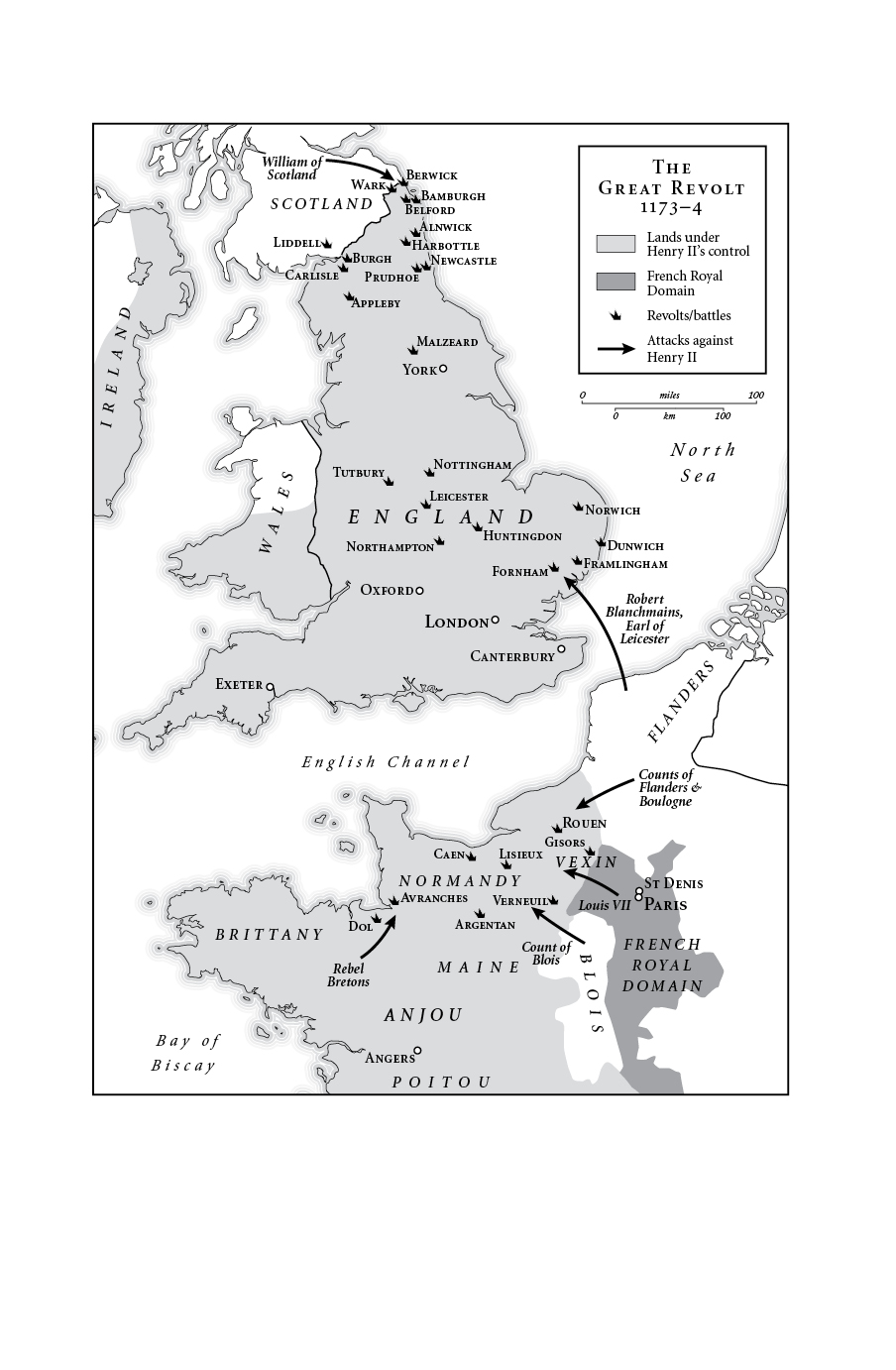
FAMILY TREES
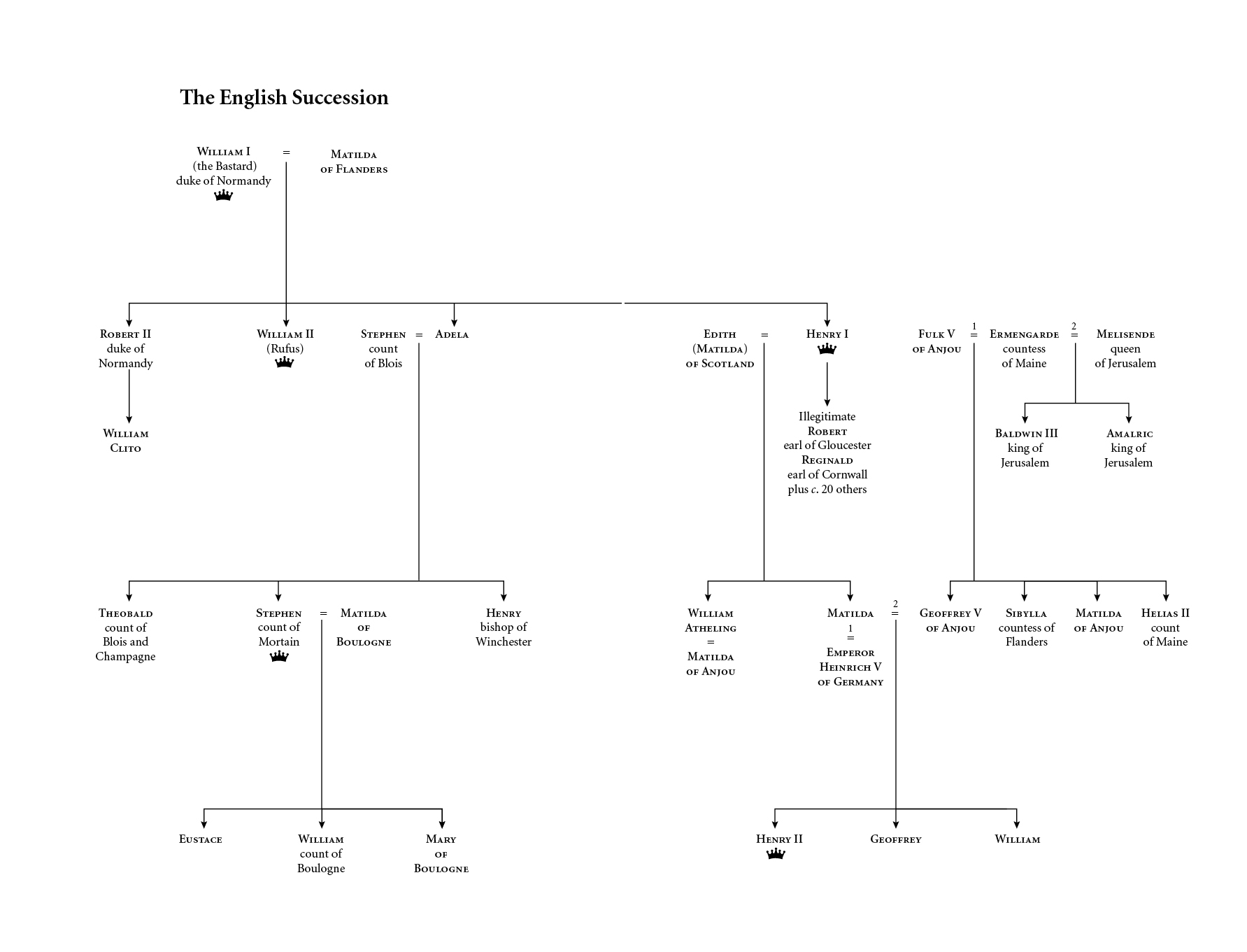
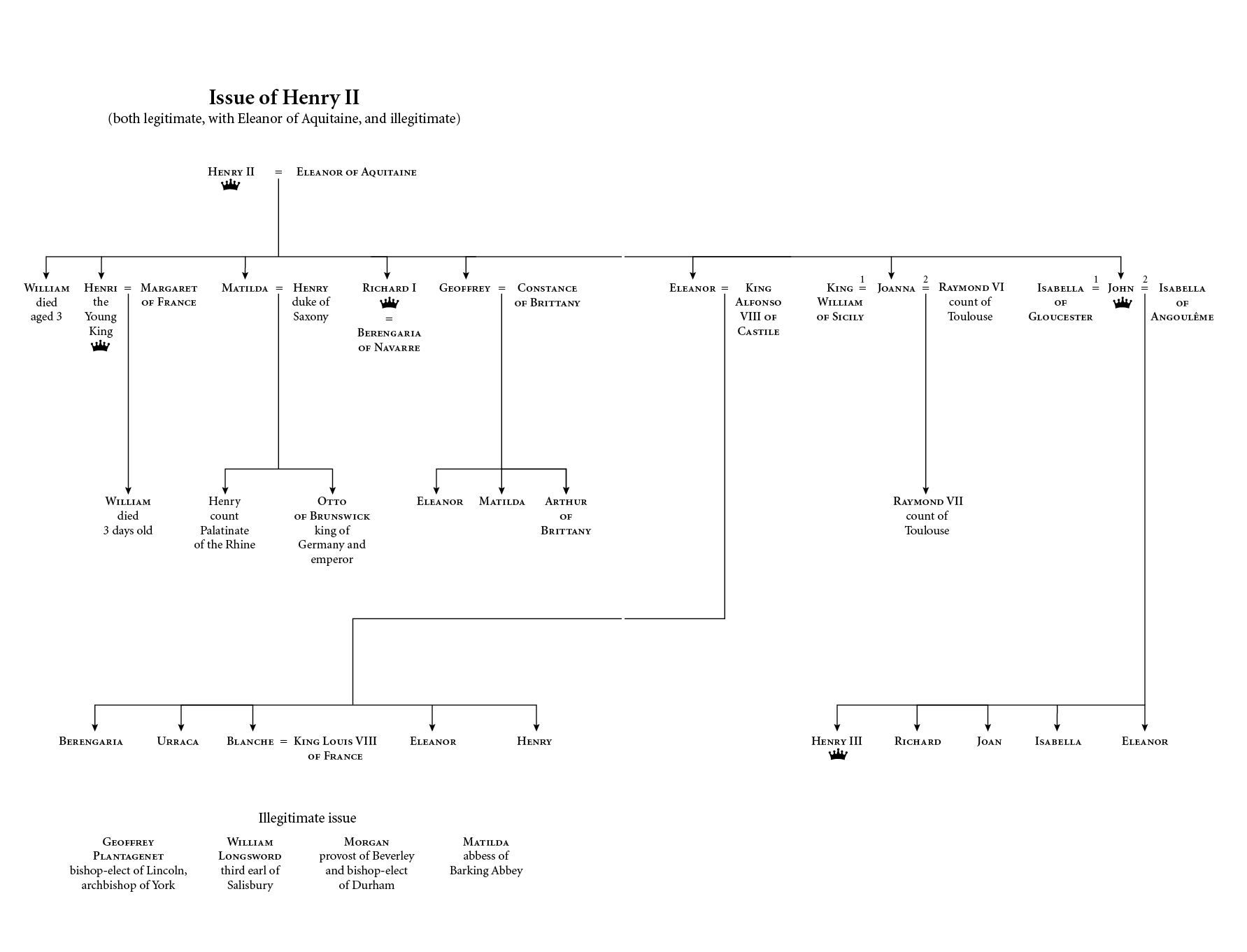
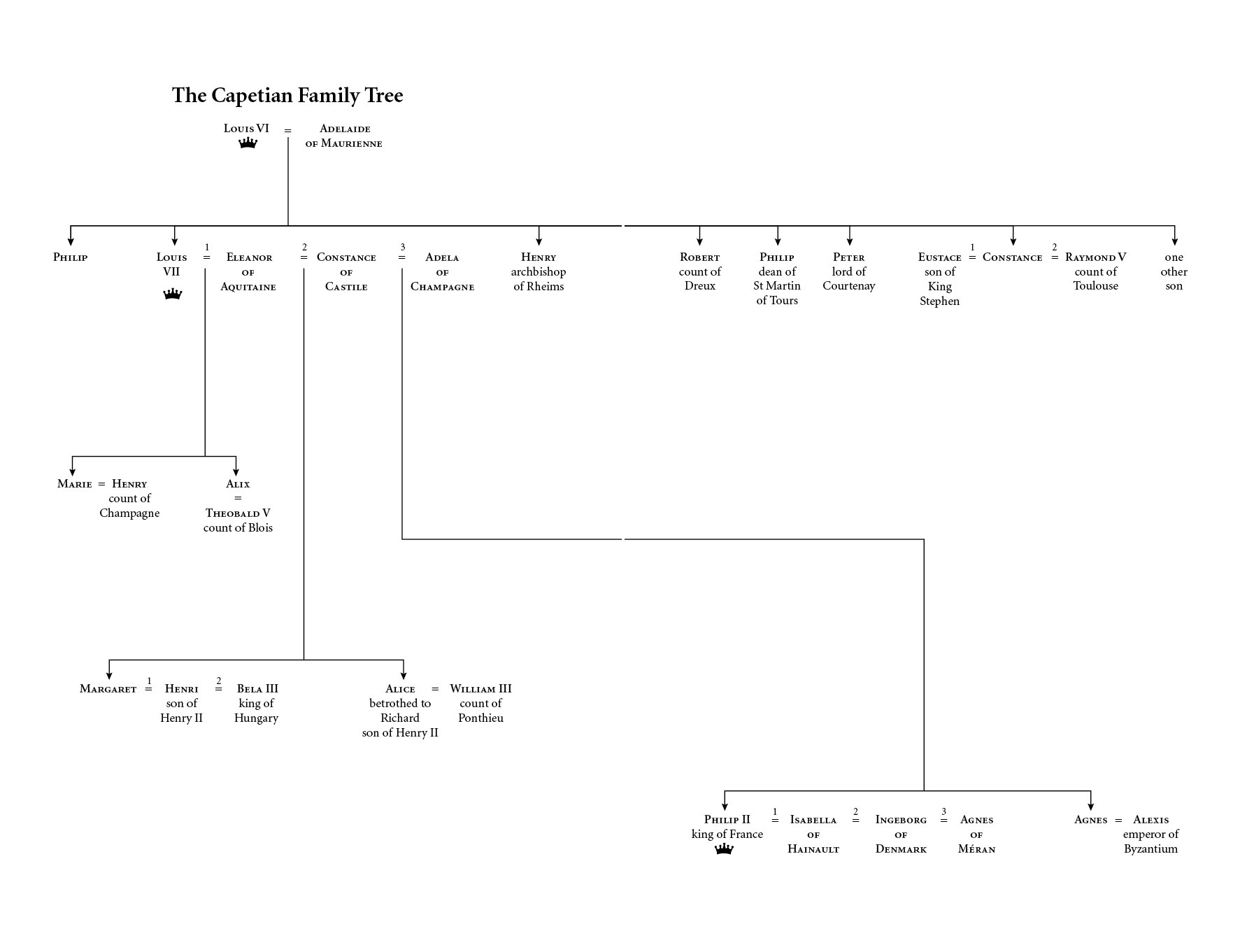
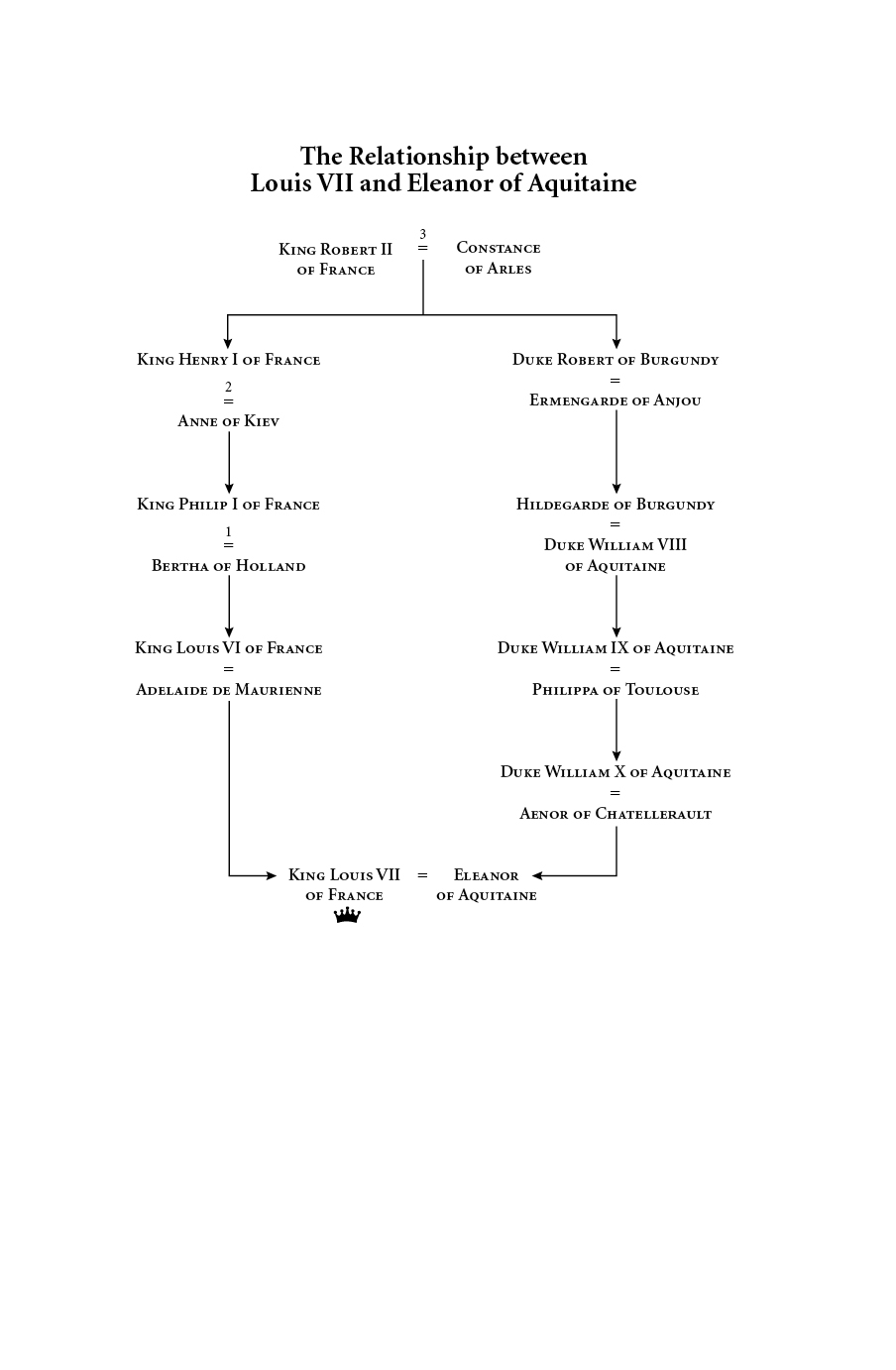
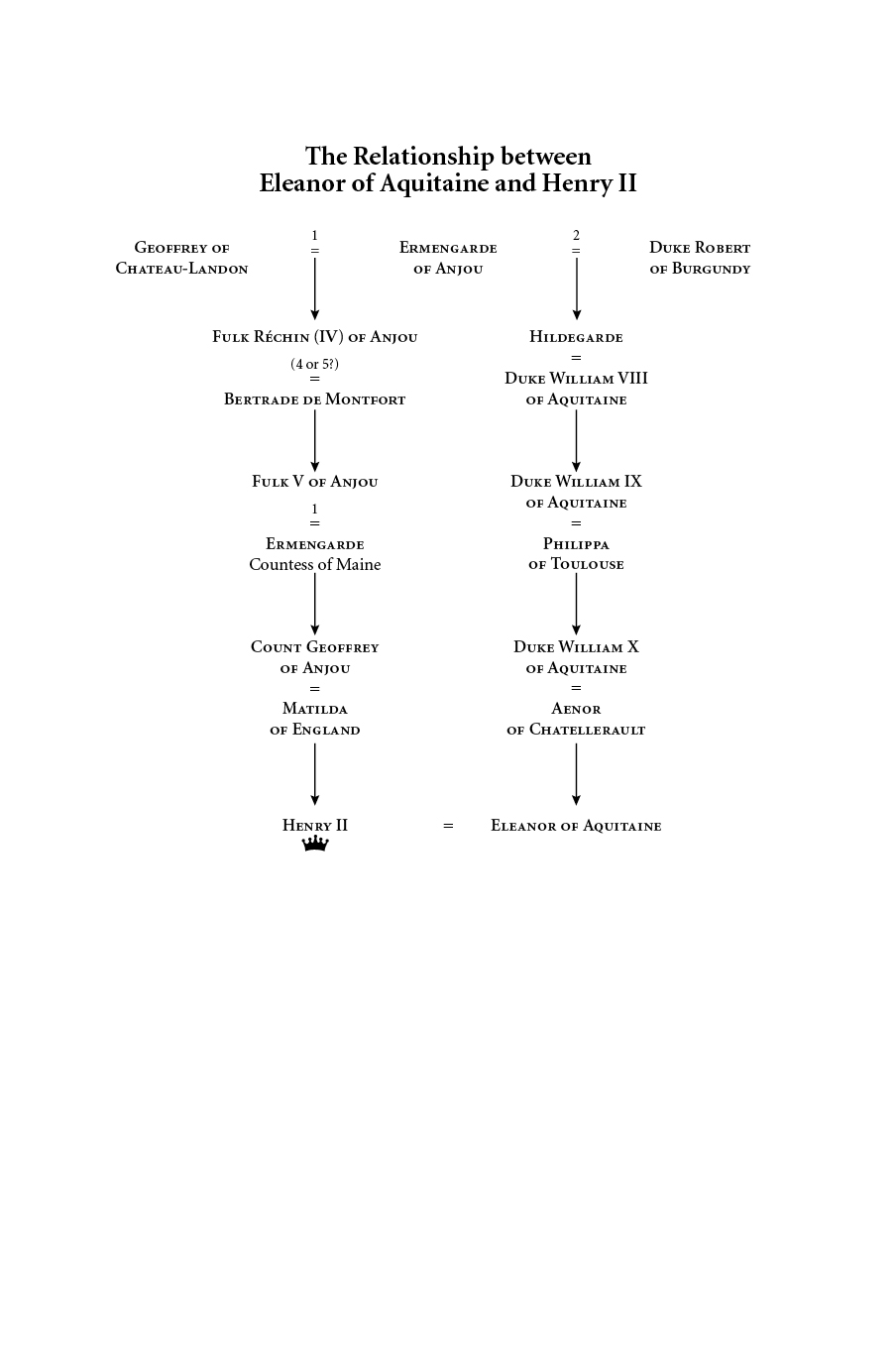
CAST OF CHARACTERS
Henry FitzEmpress: King Henry II of England, eldest son of Geoffrey of Anjou and Matilda of England.
Family
Henry I: Henry’s maternal grandfather; king of England and duke of Normandy.
Matilda: Henry’s mother; the widowed empress of Germany, married by her father to her second husband, Geoffrey count of Anjou.
Geoffrey of Anjou: Henry’s father; husband of the much older Matilda. From the age of fourteen, Count of Anjou, a principality in northern France.
Geoffrey FitzEmpress: Henry’s younger brother, who rebels against Henry as soon as he is able.
William FitzEmpress: Henry’s youngest brother; he remains staunchly loyal.
Fulk of Anjou: Henry’s paternal grandfather; leaves Anjou to marry Queen Melisende of Jerusalem. Through this second marriage, becomes king of the Latin Kingdom.
Eleanor of Aquitaine: Henry’s wife, previously married to Louis VII of France; duchess of Aquitaine, the largest and wealthiest province in France, in her own right. She is about eleven years older than Henry.
William of Poitiers: Henry and Eleanor’s eldest son, who dies aged three.
Henri the Young King: Henry and Eleanor’s second son; charming, frivolous, the family ‘golden boy’. Crowned alongside his father in 1170, but given no authority.
Richard: Henry and Eleanor’s third son, destined to rule in Aquitaine.
Geoffrey: Henry and Eleanor’s fourth son; duke of Brittany.
John: Henry and Eleanor’s fifth son and last child, later known as ‘Lackland’; Henry’s favourite legitimate son.
Matilda of Saxony: Henry and Eleanor’s eldest daughter; married to Henry the Lion, duke of Saxony. Her beauty inspires the troubadour poet Bertran de Born to write scandalous verse about her.
Young Eleanor: Henry and Eleanor’s second daughter; married to Alfonso VIII of Castile.
Joanna: Henry and Eleanor’s youngest daughter; married to King William ‘the good’ of Sicily. Later, she is touted as a possible bride for Saladin’s younger brother.
Robert, earl of Gloucester: Eldest illegitimate son of Henry I, one of the greatest magnates in England, and Henry’s uncle. Robert fought for Henry’s rights to rule alongside his half-sister, Matilda.
Reginald, earl of Cornwall: Another illegitimate son of Henry I. Unwavering in his support for his nephew.
Geoffrey Plantagenet: Henry’s eldest illegitimate son; probably his favourite and best-liked child.
Matilda, prioress of Barking Abbey: Henry’s illegitimate daughter, born before his marriage to Eleanor.
William Longsword, earl of Salisbury: Another of Henry’s illegitimate children, born in the 1160s.
Morgan, provost of Beverly, and bishop-elect of Durham: Possibly Henry’s youngest illegitimate child, born in the mid-1170s.
Baldwin, ‘the leper king’: Henry’s first cousin, king of Jerusalem. He rules a kingdom riven with byzantine factionalism.
Marie: Eleanor’s eldest daughter by Louis, married to the count of Champagne.
Alix: Eleanor’s second daughter by Louis. She is married to the count of Blois.
Margaret of France: Louis’ eldest daughter by his second wife, Constance of Castile. Margaret is married to Henri, Henry and Eleanor’s eldest surviving son.
Alice of France: Margaret’s sister; betrothed to Henry’s son, Richard. Possibly Henry’s mistress.
Friends
Adelard of Bath: One of Henry’s four teachers, he brought knowledge of Arabic mathematics to England.
William of Conches: Another of Henry’s teachers, and one of Europe’s most celebrated scholars.
William Marshal: ‘The greatest knight in the world’, who served Henry and his family for over fifty years.
Rosamund Clifford: Henry’s favourite mistress, ‘the love of his life’.
Richard de Lucy: Henry’s co-justiciar and one of his great magnates.
Robert, earl of Leicester: Henry’s other co-justiciar; an enormously powerful nobleman.
Ranulf de Glanville: Justiciar in the latter part of Henry’s reign; possible author of On the Laws and Customs of England, which details the reforms under Henry’s reign that would become the foundations of English Common Law.
Richard FitzNigel: Henry’s treasurer and author of the influential Dialogue Concerning the Exchequer.
Brian Fitz Count: Illegitimate son of the duke of Normandy, and one of Matilda’s closest allies. They were possibly lovers.
Foes
King Stephen: Matilda’s first cousin and mortal enemy. He stole the throne from her.
Matilda of Boulogne: Stephen’s queen, a warrior for his cause.
Eustace: Stephen’s eldest son and heir, who tries to murder Henry.
William: Stephen’s second son; plots to murder Henry, although in secret.
Louis VII of France: Eleanor’s first husband and Henry’s overlord for his lands in France.
Bernard of Clairvaux: King Louis’ closest advisor. Loathes Henry and his Angevin family, believing them to be descended from the Devil.
Thomas Becket: Henry’s chancellor, and then archbishop of Canterbury.
Philip of France: A machiavellian boy-king, and Henry’s nemesis.
Fairweathers
Philip, count of Flanders: Henry’s first cousin, oscillates between fighting Henry and being his ally.
Bishop Henry of Blois: Henry’s cousin, the bishop of Winchester; notorious for changing sides during the civil war, Henry never quite trusts him.
Count Raymond V of Toulouse: Henry’s slippery adversary in the south, he vacillates in pledging his allegiance to Louis, and to Henry. Nevertheless, it is Raymond who warns Henry of impending disaster.
William the Lion: King of Scotland, and Henry’s cousin.
Frederick Barbarossa (Red Beard): The Holy Roman Emperor. Barbarossa’s life mirrors Henry’s in many ways.
Pope Alexander III: Pope during the Becket crisis, but living in France, Alexander is torn between his host Louis, and Henry, who has pledged to support him against an antipope.
Hugh Bigod: One of Henry’s most powerful lords, Hugh virtually controls East Anglia.
Chroniclers
Orderic Vitalis: An Anglo-Norman historian, Benedictine monk and author of the Ecclesiastical History.
Robert of Torigni: The librarian of Bec monastery in Normandy, abbot of Mont Saint-Michel. Henry’s friend and the godfather of young Eleanor.
Roger of Howden: Court clerk, diplomat and itinerant justice, who spent many years in Henry’s company.
William of Newburgh: Historian and Augustinian canon; one of the most balanced writers of Henry’s reign.
Jordan Fantosme: Court clerk, historian, and author of an epic Anglo-Norman poem, chronicling Henry’s war in the 1170s.
William FitzStephen: One of the biographers of Thomas Becket.
Walter Map: Court clerk and author of Courtiers’ Trifles.
Gerald of Wales: A luminous and fanciful writer, who hated Henry in part because he believed he deserved a bishopric, which Henry failed to grant him.
Gervase of Canterbury: Historian, and monk of Canterbury Cathedral.
Ralph Diceto: Dean of St Paul’s, and historian.
Henry of Huntingdon: Historian and author of the Historia Anglorum.
John of Salisbury: One of the greatest writers of his age; a fierce defender of Thomas Becket.
Ralph Niger: A partisan of Thomas Becket; like Gerald of Wales, he detested Henry.
PROLOGUE
They would not let Will leave. The play had finished fifteen minutes earlier. But still 3,000 people roared in delight and begged the players and playwright to remain. They took bow after bow to the din of stamping feet. London’s richest – sat in the luxurious gallery – mixed with its poorest, who had paid a penny to stand. Will had made them believe that ‘this cockpit’ held ‘the vasty fields of France’ and of England too.
It was May 1599. William Shakespeare’s History of Henry II was the first play to be staged at the Globe at its new site on the south bank of the river in Elizabeth I’s capital city; it offered fantasy by candlelight under a ceiling painted as the heavens.
Shakespeare felt that his subject could not be bettered. He had breathed life into the legend of England’s most celebrated king – ‘Good’ King Henry II.
He told of a duke who had battled to become a king, ‘Alexander of the West’ and the finest warrior of his age. Henry had forged and held an enormous empire in twelfth-century Europe. England had not had such a king since the days of Arthur. His court was the most cultured in Europe, attracting writers, poets, scholars and mathematicians from across the known world. The king’s justice was everywhere, for everyone. He was a scholar-king, sportsman, politician and soldier, and his influence stretched as far as the holy city of Jerusalem.
This king had all the talents and all the gifts – until his family turned against him.
At first, there were only the traditional frustrations of royal sons, close to power but denied any of their own. But soon their mother joined the cause. Perfidy was in the air.
Before long, Henry’s sons and wife united with the kings of France and Scotland, and all who bore a grudge against him. Henry was threatened on six fronts: surely an impossible challenge to overcome, even for him.
The audience was enthralled by Henry’s rally to his men as they readied to fight at Dol: ‘Once more unto the breach, dear friends, once more.’ The Globe, for a suspended moment, was a battlefield in north-western France.
Henry could not lose this encounter; if he did, his enemies would take his kingdom. But his skill and cool head won the day.
The victory at Dol spurred Henry to fight on. He put aside his grief as he battled for two hard years across England and France, moving with almost superhuman speed between the fronts.
By the end he had vanquished them all; and, as a mark of his greatness, he forgave them – even his wife. He gave her what he had promised when he stole her from her first husband, the king of France: real power.
He even forced his fractious archbishop, Thomas Becket, into submission. Henry and Becket had been fighting for ten years. Now Becket limped out of his self-imposed exile back to Canterbury, bitter and broken, worn out by fasts and penances. Henry gave him the kiss of peace.
Shakespeare’s epilogue completed the hero’s life: Henry died the grand old man of Europe, at peace with his wife and his sons, and his empire intact.
The story was brilliant propaganda for Elizabeth, the fairy queen. She was an absolute monarch, just as Henry had been. Shakespeare had not shied from depicting a complex character: Henry sometimes ruled harshly, but he could also be tender. The playwright had shown the audience Henry the king and Henry the man – imperfect to be sure, but remarkable in person and triumphant over adversity.
***
This is, of course, not what happened.
William Shakespeare, the genius propagandist of the Tudor and nascent Stuart dynasties, never wrote about Henry II. Instead he scattered his fairy dust over the Lancastrian faction in England’s War of the Roses, and the ultimate victors: his masters, the Tudors.
When the Globe theatre was moved across the river, the first play to perform there was most likely Henry V. The words I placed in Henry II’s mouth before his battle at Dol, Shakespeare placed in the mouth of Henry V on the morning of the battle of Agincourt on St Crispin’s Day. Agincourt is one of the most famous battles in English history; Dol is known only to a small band of medieval historians and enthusiasts. And today Henry II, the father of the Plantagenet dynasty that ruled England for 330 years, is largely forgotten.*
Henry was trained for power, but he had to fight for all that he gained. By the mid-1170s he was lord of England, Normandy, Brittany, Anjou, Maine, Touraine and Ireland. The princes of Wales and the kings of Scotland owed allegiance to him. He not only won an empire, but held it all. His lands in France were ten times the size of the French king’s.
Besides his conquests, he began a programme of unprecedented reform that set in place the rule of law across England. He was a patron of the arts, a man of letters and he placed England at the very centre of European culture; he was a prince of the twelfth-century renaissance.
By any measure, this is a man who should be celebrated as one of England’s greatest kings. And yet he is not. History might have judged and remembered Henry differently, had (as one of his biographers speculates1) he died in 1182. It is easy to imagine: a pressing matter of diplomacy that required his presence in Normandy, a sea crossing, a violent storm – and the drowning of the king in the English Channel.
Henry did not die in 1182; he lived for another seven years. These were the worst years of his life. They were blighted by his failure to dominate a new French king, Philip Augustus, and renewed fighting with his sons, who would hound him to his death.
Thomas Becket, Henry’s archbishop, did not die in his bed. Henry’s men murdered him in his cathedral church at Canterbury in 1170. The murder was the culmination of six years of bitter quarrels over the precedence of church or state. Just days before, Henry had exploded in anger at Becket’s behaviour. At his Christmas court he shouted, ‘What miserable drones and traitors have I nourished and promoted in my household, who let their lord be treated with such shameful contempt by a low-born clerk!’ Four loyal knights, believing Henry wanted rid of Becket, sped across the sea from Normandy to Canterbury. As they entered the cathedral fully armed, they shouted ‘King’s men, king’s men’, hacked off the top of Becket’s head and left his body awash with blood on the cathedral floor.
It took years for Henry to recover from the propaganda disaster of Becket’s death, and this may be a reason why Shakespeare never wrote about him – if he had tackled the thorny issue of Thomas Becket, it is doubtful that the play would ever have been performed. The Elizabethan and Stuart authorities did not take kindly to religious themes in plays.
Henry ended his days, not in the warm embrace of a loving family and peaceful empire, but unloved and alone, a broken man. Even his adored youngest son John betrayed him. England’s burning light was reduced to no more than a flicker in the shadows.
Tragic heroes, as Aristotle noted, attract us with their blend of light and shade. Like us, they are neither wholly good nor bad. We empathise with them, in part because the consequences of their mistakes seem to us far more severe than they deserve, echoing Lear’s lament, ‘I am a man more sinned against than sinning.’ We are drawn to them because we see the same frailties and the same capacity to err in judgement that we exhibit ourselves. They hold up a mirror to our own imperfections.
Although we may see fragments of ourselves in them, however, they are ultimately not the same as us. The Aristotelian tragic king plays on a grander stage – and his capacity to do good in the world, or inflict harm on others, is far greater and more wide-reaching as a result.
Henry is in many ways the classic tragic hero. And though an emotionally complex man, the cause of his undoing bears resemblance to that beloved of the Greek dramatists: hubris.
This book tells Henry’s true story, and it is a tragedy. It is the story of a great hero whose life traces an arc from ascent, to glory, to defeat, and who is brought down by a tragic flaw in his own character.
Henry II, who forged an empire that matched Charlemagne’s – the Alexander the Great of the Middle Ages. This most talented of English kings, who became the most haunted.
* ‘Plantagenet’ was not used by Henry and his contemporaries as a family name. Henry referred to himself as ‘FitzEmpress’. It was first used as a surname by Richard duke of York in 1460 when, as ‘Richard Plantagenet’, he claimed the throne from his mentally unstable cousin, Henry VI.
Конец ознакомительного фрагмента.
Текст предоставлен ООО «ЛитРес».
Прочитайте эту книгу целиком, купив полную легальную версию на ЛитРес.
Безопасно оплатить книгу можно банковской картой Visa, MasterCard, Maestro, со счета мобильного телефона, с платежного терминала, в салоне МТС или Связной, через PayPal, WebMoney, Яндекс.Деньги, QIWI Кошелек, бонусными картами или другим удобным Вам способом.
Вы ознакомились с фрагментом книги.
Для бесплатного чтения открыта только часть текста.
Приобретайте полный текст книги у нашего партнера:
Полная версия книги
Всего 10 форматов



